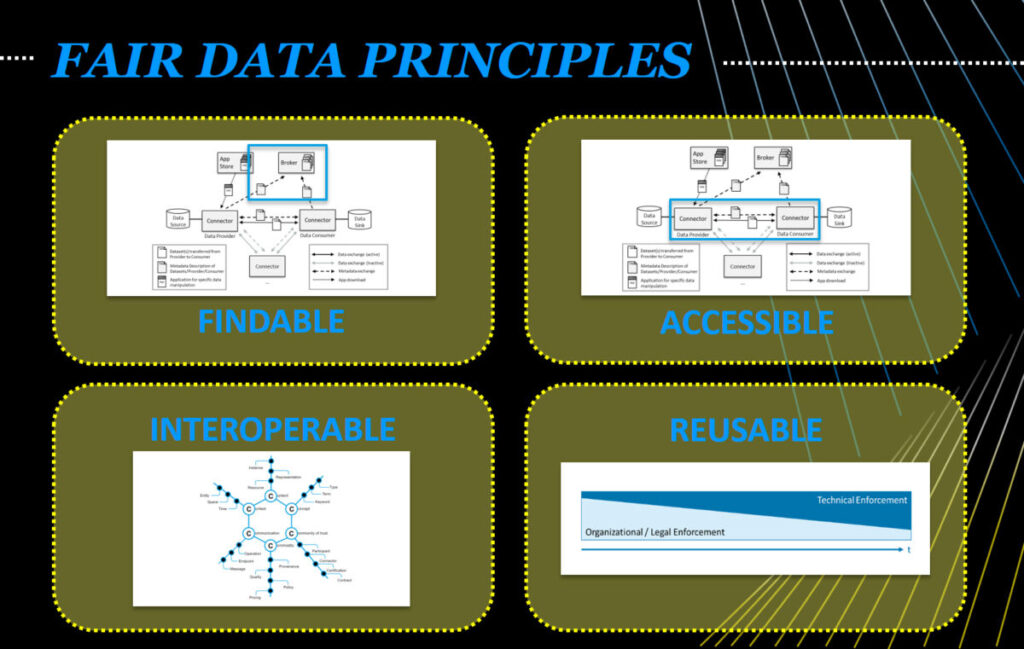The original article from Wilkinson et al “The FAIR Guiding Principles for scientific data management and stewardship” (read it on the web: www.ncbi.nlm.nih.gov/pmc/articles/PMC4792175) is worth reading. During the following years the FAIR principles were discussed and implemented in research and policy. This happened in parallel to the development of the International Data Spaces.
The IDS Reference Architecture Model is driven by the need from the industry to make data available and usable to generate value out of data in ecosystems. So we started from a different perspective, but this demand from the industry can be mapped directly to the FAIR data principles. In a data driven business ecosystem data must be findable and accessible to link the data and put it into use. Data must be interoperable to lower hurdles for everyone involved in the value chain and/ or the supply chain. Finally the usage of the data must be supported by available legal contracts including usage policies that can be enforced at the data user side.
Following this approach a clear mapping of the FAIR data principles to components of the IDS RAM can be found:

FINDABLE: The IDS Broker enables searching of data sources. Every node (the connector of a participant) in the IDS publishes a self-description and can make this available on a broker. The broker supports searching in the meta-data of the data-sets.
ACCESSIBLE: The IDS Connector supports the access to data in a standardized way including the management of digital identities, authentication and authorization. Based on this fundamental requirements the IDS Connector enables further functionalities to address special purposes (the IDSApps), like schema or protocol transformations, aggregation, analytics or other functionalities, as well as safeguarding constraints on the data access (usage control).
INTEROPERABLE: The IDS Information Layer provides an information model that acts as a foundation for the semantic interoperability of metadata. By agreeing on this standard, every connector in the data space is able to connect to every other connector in the data space and is able to understand the syntax and the semantic of the data available and the associated usage policies.
REUSABLE: Usage policies and usage policy enforcement is in the core of the IDS-RAM. These usage polices as a technical description are supported by legal contracts and by a certification approach for both organizations and technical components. This supports the reusability of the data, but this is based on data sovereignty. Data sovereignty is the ability of a natural or legal person to exclusively and sovereignly decide concerning the usage of data as an economic asset.
The FAIR DATA PRINCIPLES support the emergence of Open Science while the IDS approach aims at open data driven business ecosystems. Both ideas are fundamentally aligned and can learn from each other.
If you want to know more about FAIR data check the FAIRsFAIR project (www.fairsfair.eu) and the further reading section.
For more details on the International Data Spaces, please check: www.internationaldataspaces.org








